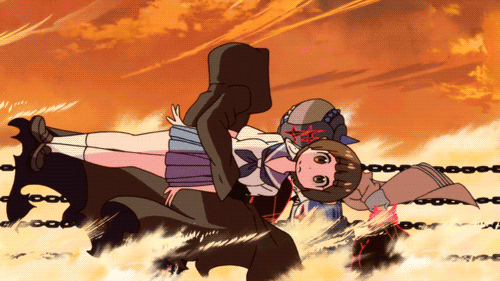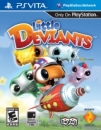
Torment: Tides of Numenera is a game set in the world of Monte Cook’s new tabletop RPG setting, Numenera. Torment continues the thematic legacy of Planescape: Torment, a critically acclaimed role-playing game from 1999 that's considered by many to be a hallmark for storytelling in computer RPGs. With Torment, we're striving to create a rich role-playing experience that explores similar deep, personal themes. Here's the scoop:
- Torment is a single-player, isometric role-playing game.
- You will play a single, specific character, though you will encounter optional NPC companions you may choose to include in your party.
- The story-driven game will have a rich dialogue system and approach similar to that of Planescape: Torment.
- The game will be developed in the Unity engine for PC (Windows), Mac, and Linuxplatforms.
- The game will be available in English, French, German, Italian, Polish, Russian,Spanish.
- The game will be distributed DRM-free. (You’ll be able to get it from Steam, and other DRM-free download options will be made available.)


Torment is being developed by inXile entertainment, a mid-sized independent game developer located in Newport Beach, CA. inXile was founded by Brian Fargo in 2002 and is best known for its action-RPG The Bard’s Tale. The Android version of that game was released in fall 2012, topping the charts and winning several awards.
With inXile, Brian has embraced the crowdfunding approach. He is a vocal advocate of circumventing the traditional publisher-developer business model, with developers instead communicating and working directly with the players.
With Torment, if we reach the $900,000 goal but fall short of a million, Brian will personally fund the remaining amount to reach $1 million total for development. If funding beats $1 million, he will instead contribute 10 cents from every $1 pledged from the $1 million to $2 million mark.
He launched the Kicking It Forward initiative – a pledge to donate 5% of a crowdfunded project’s profits (to be clear, this is post launch profits, not money pledged towards development of this product) to support other crowdfunding efforts. Over 200 other successfully funded Kickstarter projects have embraced Brian’s Kicking It Forward promise. In February, inXile revealed a first look at Wasteland 2’s gameplay to a very positive response by the project’s backers.
Brian Fargo (Executive Producer) has worked in the video game industry since its infancy, having founded Interplay Entertainment in 1983. Interplay became a top five PC games publisher in the mid-1990s, producing some of the biggest RPGs. These include the classic The Bard’s Tale series, Wasteland, Fallout and Fallout 2, Baldur’s Gate, andPlanescape: Torment. Interplay also helped to launch some of the biggest developers, such as Blizzard, Bioware, and Treyarch. Brian founded inXile in 2002 and is the executive producer for Wasteland 2.
Colin McComb (Creative Lead) was a key designer for TSR’s Planescape setting and wrote many products for the Dungeons & Dragons franchise (including the award-winning Birthright Campaign Setting) and Paizo's Pathfinder setting. He worked as a designer onFallout 2 and Planescape: Torment and was a writer for Wasteland 2. Colin’s self-published work includes the first two books in his Oathbreaker series.
Monte Cook (Numenera Creator) has been a tabletop RPG designer since 1988, with his many works including D&D 3rd Edition, Ptolus, and Arcana Evolved. With Colin, he was responsible for much of the Planescape setting. His newest creation, Numenera, was crowdfunded through Kickstarter in September 2012, raising more than 2,500% of its target funding goal.
Kevin Saunders (Project Director) has been developing video games since 1998 and worked for five years on RPGs at Obsidian Entertainment. He was the lead designer and producer for Shattered Galaxy, the critically acclaimed massively multiplayer online real-time strategy game, as well as Mask of the Betrayer, considered by many RPG fans to be the game closest to Planescape: Torment (so far). One of Kevin’s specialties is game interface design, and last year he published the second edition of his book on the topic.
Mark Morgan (Composer) has composed music for film, television, and video games, including Planescape: Torment, Fallout, Fallout 2, Fallout: New Vegas, and Wasteland 2. He is composing at least 40 minutes of music for Torment, and he composed the music for Torment’s Kickstarter video.
The skilled concept artists involved in Torment include Nils Hamm, Dana Knutson(concept artist for TSR’s Planescape setting), Andree Wallin, and Chang Yuan.
Risks and challengesLearn about accountability on Kickstarter
As you all know, we’re not making widgets—video games are complex projects (not that all widgets are simple). Fortunately, we collectively have more than 80 years of experience in managing them. Given our great progress in developing Wasteland 2, our experience with the technology, and our approach to Torment’s design and production, we are confident in our ability to provide our backers with a quality game deserving of the Torment name.
Torment’s schedule has been designed to maximize both planning (preproduction) and polishing. This extended preproduction period controls costs and increases quality because we’ll have a very well-defined product before production begins. Our target release date of December 2014 allows us 14 months for production and finalization. (In comparison, Wasteland 2 had 12 months, and Mask of the Betrayer had nine.) Furthermore, various systems and tools developed for Wasteland 2 will be used or adapted for Torment, saving development time and budget.
With a longer schedule, you might wonder how we’ll be able to create Torment if it receives less funding than Wasteland 2 did. First, Torment's story is being designed to be highly modular and scalable. This approach not only lets us increase game reactivity and replayability, but it also let us keep the game's scope flexible. At our target funding, we’ll be able to deliver a complete and satisfying game and as funding increases above the target, Torment will continue to grow in depth and size. But, as resources allow – if Wasteland 2 is a commercial success, for example – we are ready to expand the modular story.
Also, inXile has established secondary revenue streams that will bolster Torment’s development budget. For example, last September, The Bard’s Tale was released on Android, winning many awards and selling hundreds of thousands of copies in just a few months. While this doesn’t provide enough money to create a game like Torment, it lets us invest in Wasteland 2 and Torment to improve their quality. Although Torment would not be possible without your support, we are self-funding a portion of the game as well. Just like you, we want Torment to be the best it can be.
http://www.kickstarter.com/projects/inxile/torment-tides-of-numenera


 @TheVoxelman on twitter
@TheVoxelman on twitter

























































